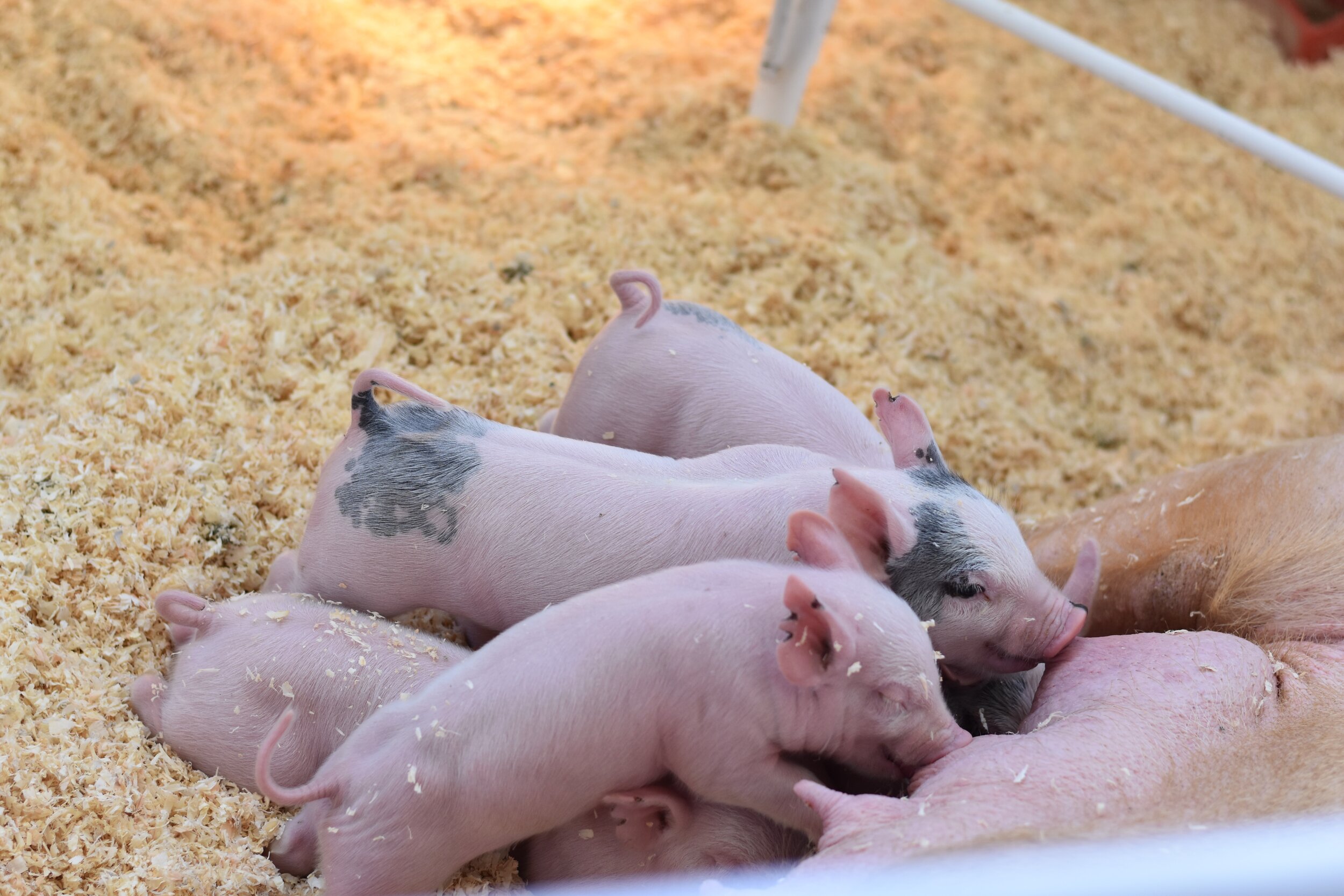
Study Resources
Each student will be provided with full course material, access to our online classroom, lectures and access to a tutor with 30 years of experience in pig farming and agricultural training.
Course Schedule/layout/format:
Students will receive study materials in the form of readings, vocabulary quizzes, videos etc.
A lecture recording will cover the topic and
Student's understanding will be assessed through assignments.
Certificates will be issued upon successful completion of the course
This course is aimed at experienced as well as aspiring pig farmers and covers the 4 pillars of pig farming namely:
HEALTH
BREEDING
FEEDING
MANAGEMENT
Price for the full course:
USD 295.00
Price per module:
USD 85.00 (x 4 modules)
To give you a taste of our course format and content, we offer a free lecture. For this course, the free lecture is:
Lesson 25 : Profitability of pig farming and importance of record keeping. We hope you enjoy the lecture!
Topic 1: Reproduction and Breeding
Week 1 Reproduction Anatomy:
Male & Female Reproductive System
Week 2 Reproduction Physiology & AI Basics:
The effect of hormones on reproduction
AI Basics
Week 3 Breeds & Breeding:
Commonly used breeds in commercial production
Cross breeding and hybrid vigor
Week 4 Selection & Genetics:
Selection and culling of breeding stock
Physical evaluation
Genotype vs Phenotype
Heritability of most important production traits
Topic 2: Health and Welfare
Week 5 Welfare:
The 5 duties of care in Animal Welfare
Optimum temperatures
Temperature management strategies
Minimum space requirements for different sized pigs
Week 6 Welfare:
Housing design and layout
Alternative (cheaper and stronger) building methods
Week 7 Health & Diseases:
Internal & external parasites
Signs & symptoms / treatments / prevention Fungal diseases
Week 8 Health & Diseases:
Bacterial diseases
Week 9 Health & Diseases:
Viral diseases
Week 10 Health & Diseases:
Zoonotic diseases
Metabolic disorders
Poisoning and overdoses Routine vaccination program
Week 11 Handling & Stockmanship:
Routine husbandry procedures
Week 12 Handling & Stockmanship:
Low stress handling & movement of pigs Balance points, loading & transporting pigs
Week 13 Handling & Stockmanship:
EFFLUENT – Asset or Liability? Uses and facilities / equipment needed
Topic 3: Feeds, Feeding & Nutrition
Week 14 Nutrition & Monogastric Digestive System:
The monogastric Digestive System
What nutrients does the body need?
What does each nutrient do in the body?
Where and how each nutrient is digested
Week 15 Feeds available to pig farmers:
Conventional feed ingredients and their nutritive values
Some alternative feed ingredients and their nutritive values
Week 16 Principles of ration balancing
Nutritional requirements of different size/age and classes of pigs
Week 17 Principles of ration balancing
Basic Ration balancing
Week 18 Feeding Systems:
Ad Lib vs restrictive
Based-on-production feeding
“Snacking”
Week 19 Feeding Systems:
How to reduce your feed bill and maximize profit
Topic 4: Management
Week 20 Management of the breeding herd
Gilts:
Onset of puberty – Age vs Weight
Heat spotting and fitting them into your existing production cycle
Postponement of mating – advantages when mating gilts
Week 21 Management of the breeding herd
Sows:
Optimizing the throughput through your expensive facility
Week 22 Management of the breeding herd Boars:
Selection
Regular use and emergency use
Contribution to genetic improvement on your farm
Suckers:
Giving suckling piglets the best start in life
Week 23 Weaners & grower pigs:
Finishing Pigs:
How old are your pigs at a specific slaughter age?
How do you compare with industry standards?
How does this affect profitability?
Week 24 Record keeping
Record keeping systems and interpreting collected data.
Course review and evaluation
